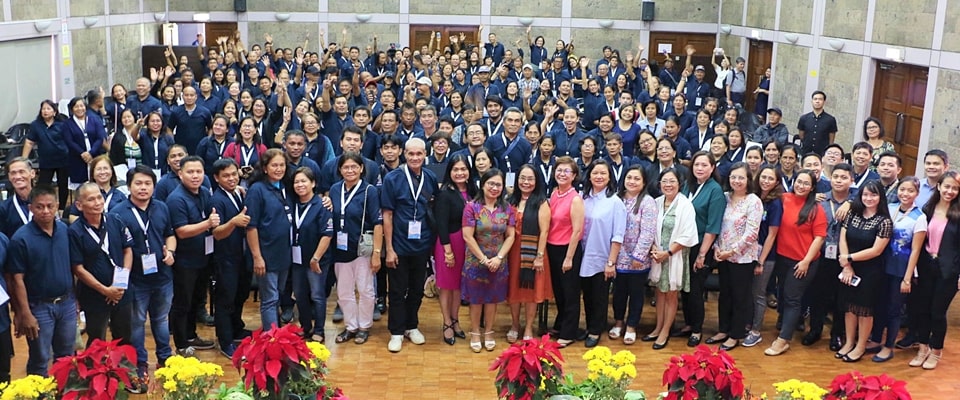
The Department of Agriculture (DA) through its Bureau of Agricultural Research (BAR), and the Southeast Asian Regional Center for Graduate Study and Research in Agriculture (SEARCA) jointly organized the 4th National Community-based Participatory Action Research (CPAR) Congress held on 28-29 October 2019 at the BSWM Convention Hall, Diliman, Quezon City, Philippines.
The congress was conducted to highlight the major results of DA-BAR's Community-based Participatory Action Research Program, which is a location-specific research cum extension activity that involves the verification and/or adaptation/demonstration of improved farming systems technologies and practices to suit the needs and requirements of a specific micro-agro-climatic environment within a given municipality or province. It adopts the participatory approach to research and development process where farmers/fisherfolk are considered as partners/co-implementers and providers of key inputs and not merely as recipients and beneficiaries of the project.
The major highlight of the conference is the tribute given to the farmer-scientists supported by the CPAR program. A number of them shared their respective experiences in participating with the CPAR program particularly how such intervention has been instrumental in increasing productivity and income. For instance, Mr. Vicente Casas Sr., a proud farmer from Zamboanga, shared the CPAR program has provided them how to effectively wield technologies to increase profit margin in their rubber plantations. On the other hand, Ms Sherlie Suniga, farmer from Ilocos Region, also related how CPAR was instrumental in increasing their access to better trainings and farm inputs that were selected jointly by their farmers organizations. Such sentiments were also shared by a number of farmers and fisherfolk from different parts of the country who were also invited to speak during the event.
Dr. Nicomedes P. Eleazar, Assistant Secretary for Special Affairs of DA and Director of DA-BAR, shared how his organizations were steadfast in supporting the farmers and fisherfolk through improved research and information utilization. On the other hand, Dr. William Dar, Agriculture Secretary, likewise emphasized the importance of utilizing the results and technologies generated from various CPAR projects across the country, and touted the need to explore means towards commercialization in as much as possible. The good Secretary also raise the challenge of upscaling the 20-year experience of the CPAR program stressing the importance of lessons learned, and the maximization of technologies tested so that farmers and fishers can fully benefit from them.
To further support DA-BAR in its effort to enhance the up-scaling and scaling-out efforts of tested technologies and farming practices in the coming years, SEARCA is currently undertaking a project that assesses the overall program cycle of implementation of CPAR with the DA-BAR regional field offices (RFOs), the Bureau of Fisheries and Aquatic Resources (BFAR), and the local government units-implementing partners to draw lessons and harvest policy recommendations for the overall improvement of CPAR. This 18-month project would provide DA-BAR a developed Results-based Monitoring and Evaluation (RBME) Framework for CPAR Program using the Theory of Change (TOC) Model, Policy Brief and updated CPAR Manual for the improvements of the program and bench marking activities on the implementation process of CPAR vis-à-vis comparable programs implemented by other national government agencies and other research institutions within and outside of the Philippines.